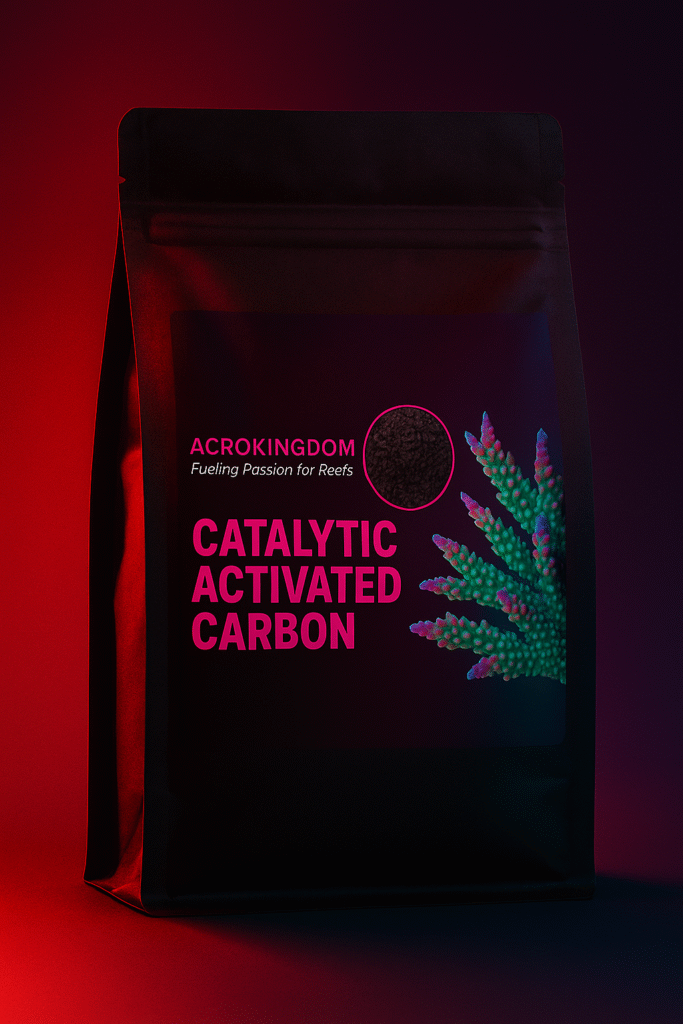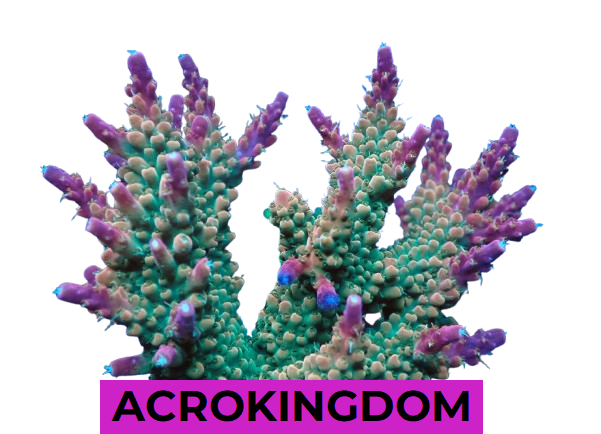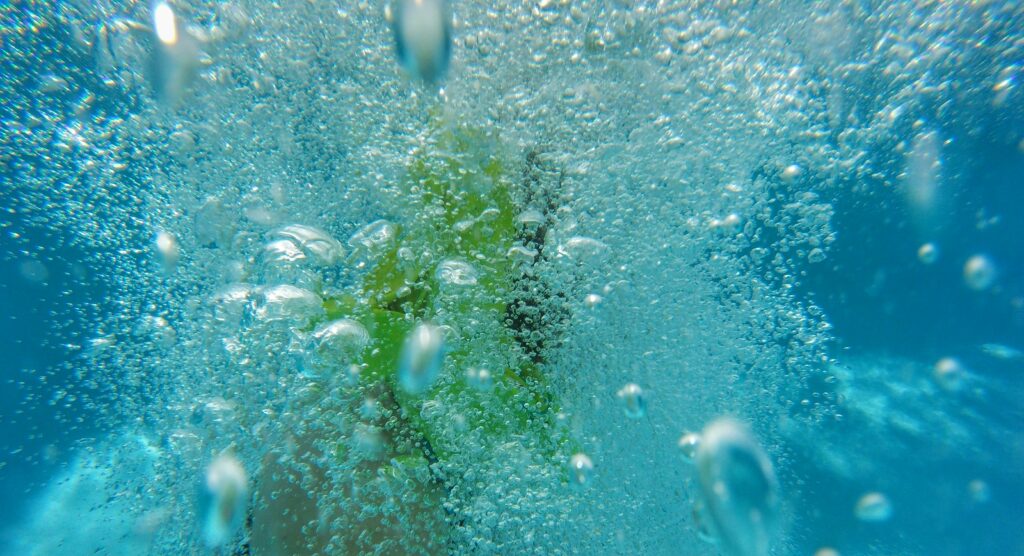Reef Insights
DOC in Reef Aquariums: Unlocking the Secret to Better Polyp Extension
Introduction: Why DOC in Reef Aquariums Matters
DOC in reef aquariums (dissolved organic carbon) is often an overlooked parameter, yet it plays a powerful role in coral health. While some organic carbon is essential, excessive levels can harm corals in subtle but serious ways. At ACROKINGDOM, we’ve experienced firsthand how controlling DOC in reef aquariums transforms coral vitality—especially when it comes to polyp extension.
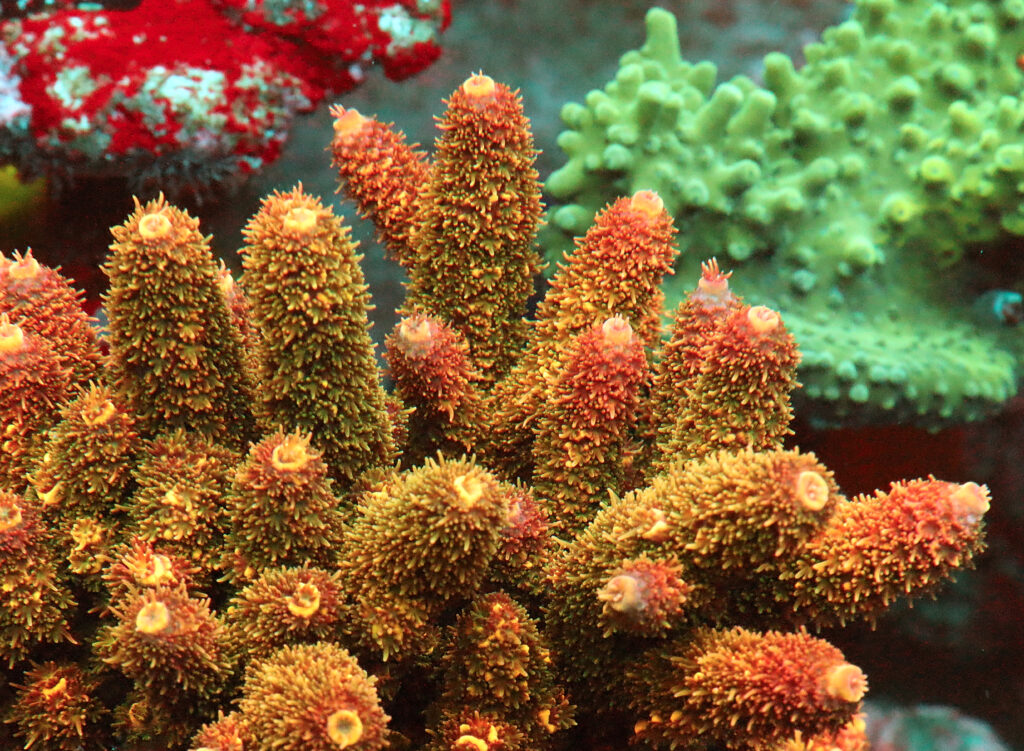
Negative Effects of Excess DOC in Reef Aquariums
When DOC in reef aquariums rises too high, it accelerates microbial growth in the coral’s mucus layer. This can disrupt the delicate coral–Symbiodiniaceae relationship, leading to stress and in some cases mortality. Elevated DOC essentially fuels microbes that compete with corals for oxygen and nutrients, weakening their natural defenses.
Species-Specific Responses to DOC
Interestingly, not all corals respond to DOC in reef aquariums the same way. Reef-building stony corals often show negative effects, such as bleaching or breakdown of their algal symbiosis, when DOC levels spike. However, certain soft corals and octocorals—like Xenia or Pinnigorgia—sometimes handle moderate DOC enrichment without issues. In fact, under stable temperatures, they may even respond neutrally or positively. This highlights how crucial it is to fine-tune DOC management for the types of corals being kept.
Here is an interesting article from the Marine Biology Journal about the “Excess particulate organic matter negatively affects the ecophysiology of the widespread soft coral Xenia umbellata“
Our Experience at ACROKINGDOM with DOC Control
Since we at ACROKINGDOM introduced catalytic activated carbon into our systems, the results have been remarkable. By lowering DOC in reef aquariums to the 2–3 (m⁻¹) range, measured via SAC254 using ICP-MS, we’ve observed polyp extension like never before. The improvement has been consistent across all our Acropora colonies.
This experience confirms that while DOC provides a source of energy and nutrition at natural levels, excess accumulation works against coral health. Precise control using catalytic activated carbon not only clears the water but also directly benefits coral physiology.
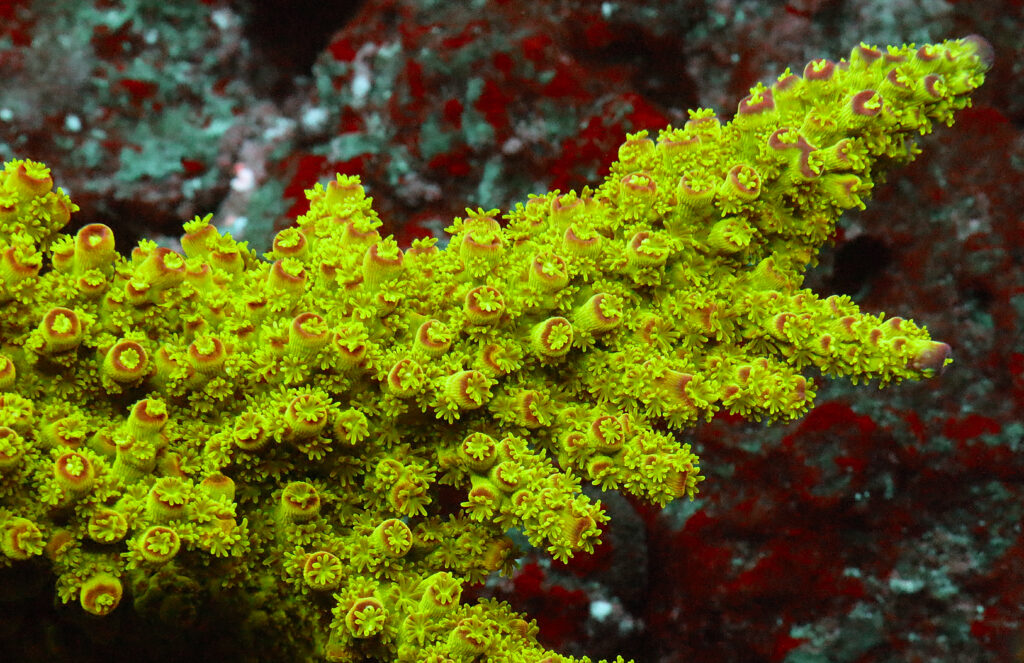
Why Managing DOC in Reef Aquariums Should Be a Priority
Many reef keepers focus heavily on alkalinity, calcium, and magnesium while overlooking DOC in reef aquariums. Yet, dissolved organics shape the microbial landscape, influence coral–algae symbiosis, and affect how corals present themselves day to day. If polyp extension is your ultimate indicator of coral health, then DOC management deserves a place at the top of your reefing checklist.
Final Thoughts
The connection between DOC in reef aquariums and coral behavior is clear: balance matters. Too much DOC stresses corals, while controlled levels open the door to improved vitality and stunning polyp extension. Our journey at ACROKINGDOM proves that modern tools—like catalytic activated carbon combined with precise measurement—allow reefers to take control of this hidden parameter.
